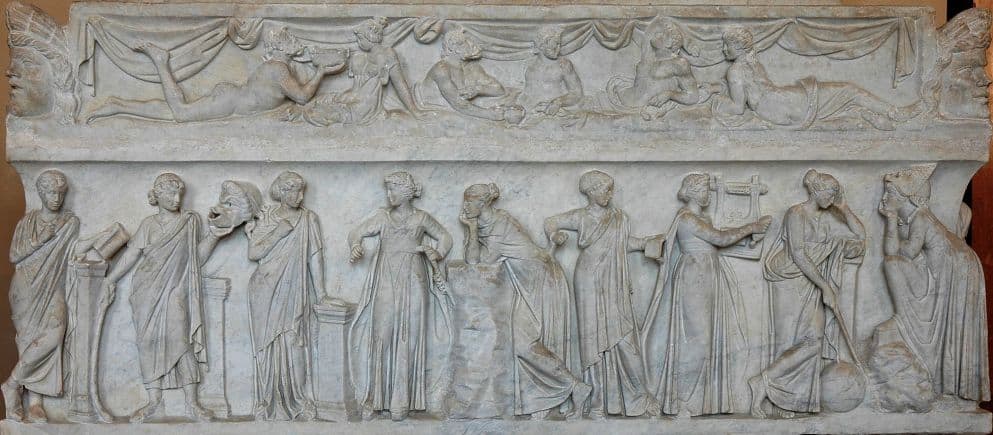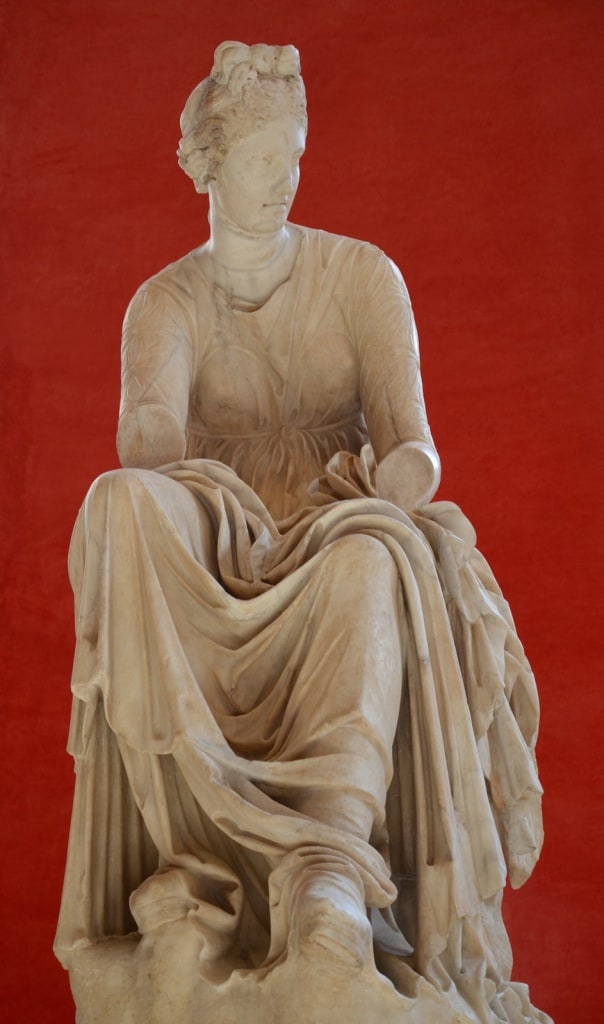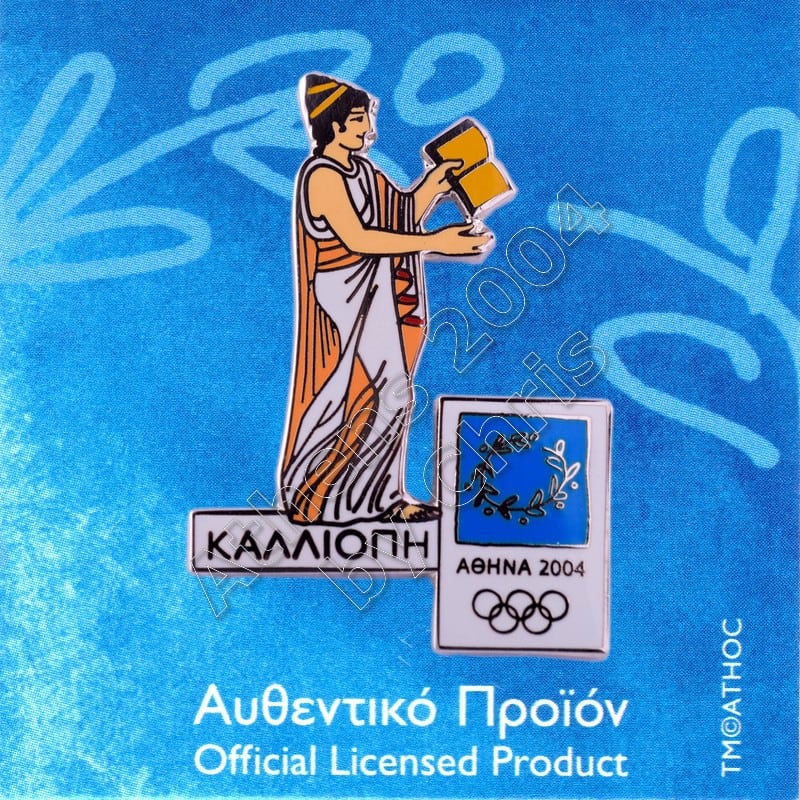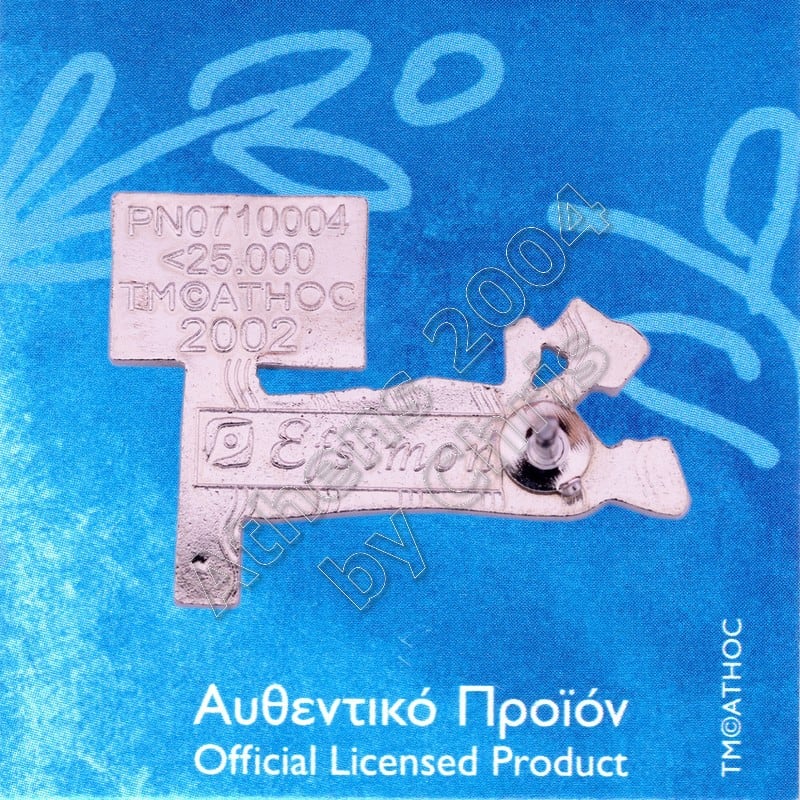Description
 Calliope Muse – Greek Mythology
Calliope Muse – Greek Mythology
Athens 2004 Olympic Games Pin
The Nine Muses in Greek mythology are the goddesses of the inspiration of literature, science, and the arts. They were considered the source of the knowledge embodied in the poetry, song-lyrics, and myths that were related orally for centuries in these ancient cultures. They were later adopted by the Romans as a part of their pantheon.
Their names are: Clio, Erato, Urania, Calliope, Euterpe, Melpomene, Thalia, Terpsichore, Polyhymnia.
Calliope Muse:
Calliope Muse was the muse who presides over eloquence and epic poetry; so called from the ecstatic harmony of her voice and is believed to be Homer’s muse for the Iliad and the Odyssey.
One account says Calliope was the lover of the war god Ares, and bore him several sons: Mygdon, Edonus, Biston, and Odomantus (or Odomas), respectively the founders of Thracian tribes known as the Mygdones, Edones, Bistones, and Odomantes.
Calliope also had two famous sons, Orpheus and Linus, by either Apollo or the king Oeagrus of Thrace. She taught Orpheus verses for singing.According to Hesiod, she was also the wisest of the Muses, as well as the most assertive. Calliope married Oeagrus close to Pimpleia, Olympus. She is said to have defeated the daughters of Pierus, king of Thessaly, in a singing match, and then, to punish their presumption, turned them into magpies.
Calliope is usually seen with a writing tablet in her hand. At times, she is depicted as carrying a roll of paper or a book or as wearing a gold crown.
It is also said that Calliope would inspire certain authors and playwrights until their vision was realized and then she would consume them. Calliope would also take precautions to ensure the writers, and the writers’ works, safety until she could consume the author.
The pin depicts Calliope Muse
Product: Olympic Pin
Pin code: PN0710004
Tiraz: <25.000pcs
Official Licensed Product
Licensed Manufacturer: Efsimon Collection








Reviews
There are no reviews yet.